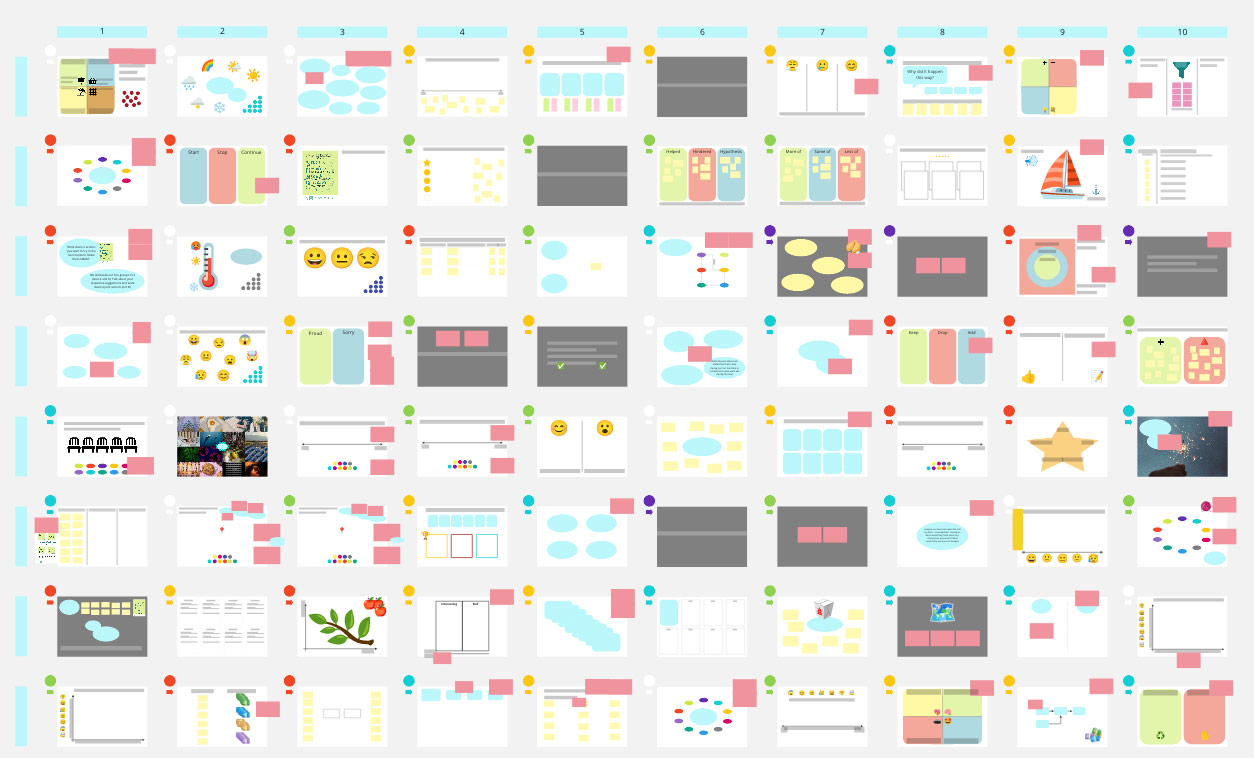What kind of X?
(#140)
Participants give a metaphor for the iteration
Source:
Unknown via Corinna Baldauf
Start by asking "If this iteration was an X, what kind of X would it be?" This question has endless variations from "If the iteration was a animal, what animal would it be?" over cocktails and furniture to plants and "If the iteration was a car, what car would it be?"
Ask everybody to write down their answer on a sticky note. Go around the team, everybody reads out their note and posts it on a board. Briefly discuss the answers. After all it's a difference if the iteration were "a BMW, but the brakes don't work" or a "red 2004 Toyota Prius". What does it mean to the people who wrote it down?



